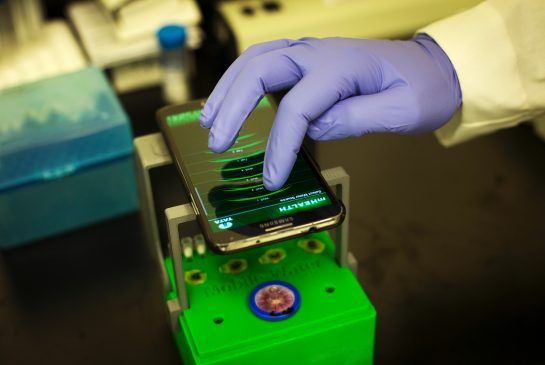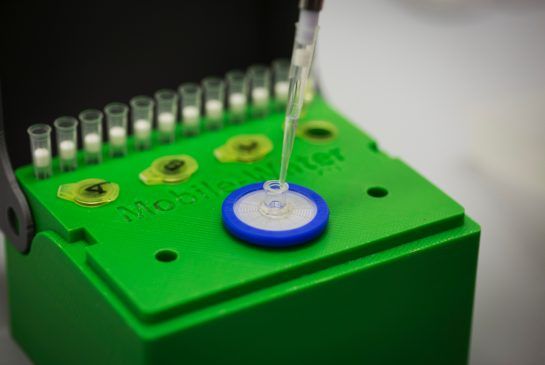E. Coli Detection in a Fraction of the Time
Published on by Water Network Research, Official research team of The Water Network in Technology
Gel-based E. coli detection process identifies contaminated drinking water in a fraction of the time of current systems.
 A gel based E. coli detection process developed in Canada promises to identify contaminated drinking water in a fraction of the time of current systems.
A gel based E. coli detection process developed in Canada promises to identify contaminated drinking water in a fraction of the time of current systems.
A team from Toronto’s York University has launched start-up company Glacierclean after creating the Mobile Water Kit, which it has tested successfully in the slums of Delhi.
The team developed a porous transparent hydrogel matrix that changes colour within one hour of coming into contact with bacteria-infected water.
According to Naga Siva Gunda, president and CTO of Glacierclean, “it is very simple. We have two components – one is a plunger with filter paper and another one is a tube with hydrogel, which has different types of chemicals encapsulated. After collecting the water sample in the tube we need to wait for one hour so that we can see the results, it’s very simple.”
Test results can be instantly broadcast to people in the locality by a mobile app developed by the team.
The hydrogel was developed by a team led by Professor Sushanta Mitra at his Micro and Nano-scale Transport Laboratory on York’s Toronto campus.
“Secondly you don’t need any trained person to do this. You can do the water testing right at the source, so there is no worry about transporting the samples.”
Traditional testing involves sending water in bottles to a laboratory, a process that can take 48 hours.
Mitra says each test costs $2-3 USD, a fraction of the cost of traditional testing, making it feasible for large-scale use in developing world communities. It’s also easy to administer, merely involving using a syringe pre-loaded with the hydrogel.
 Glacierclean has developed partnerships with NGOs (non-governmental organisations) and public health programs in remote parts of Canada, and Mitra thinks the kits could be sold in grocery stores and be given out by NGOs in the developing world.
Glacierclean has developed partnerships with NGOs (non-governmental organisations) and public health programs in remote parts of Canada, and Mitra thinks the kits could be sold in grocery stores and be given out by NGOs in the developing world.
Mitra says field tests don’t just help in checking the efficacy of the product.
He said: “These kind of field trials also helps in terms of packaging of the products, the ergonomics of the use of the products. Technology is not the bottle neck.
What really matters is how user friendly is our mobile water kit. That is what we want to improve through these various field trials and we believe we are on the right track, so that in a year’s time Glacierclean Technologies will have mobile water kit in the shelves of the supermarket.”
Read full article at: Global News
Media
Taxonomy
- E. coli
- Decontamination
- Technology
- water treatment
- E. coli
- Pollution
- Laboratory
- Laboratory Testing
1 Comment
-
Very good